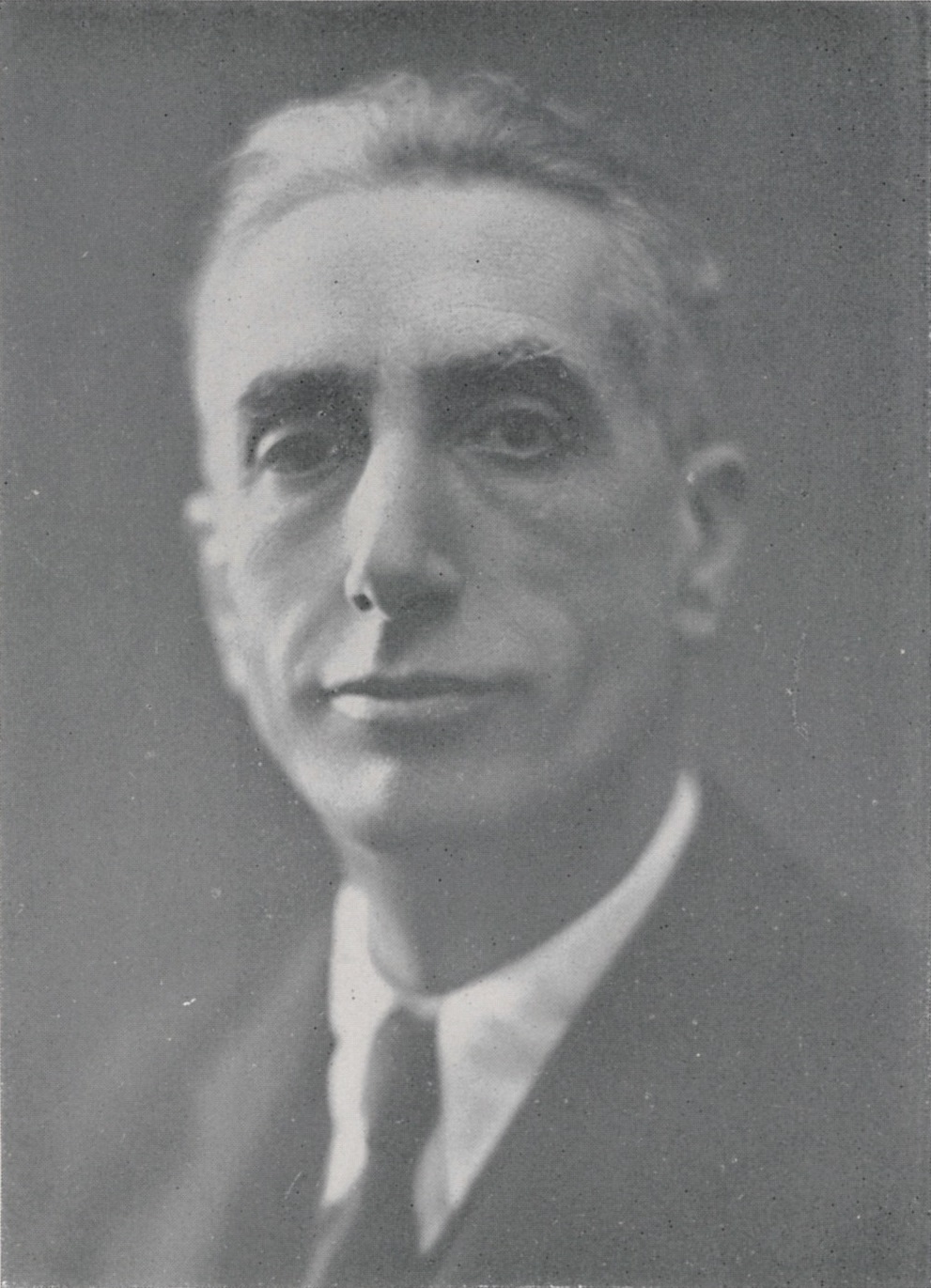Biography of Ernesto Laura
Ernesto Laura was born in Porto Maurizio on March 23, 1879, where he completed his accounting studies before moving to Turin, where he graduated in Pure Mathematics in 1901.
At the University of Turin, he began his academic career under the influence of Carlo Somigliana and especially Giacinto Morera, who wanted him as an assistant in Rational Mechanics and to whom he succeeded in teaching starting from 1909.
In 1915, following a competition in Mathematical Physics, he occupied the chair at the University of Messina, but in 1916 he was called to military service as a third-category soldier. Appointed as an Engineering Officer, he was assigned to the Technical Direction of Aviation, where he remained until his discharge in January 1918.
He then resumed teaching at the University of Pavia, where he had already won a competition in 1916, and where he held the chair of Rational Mechanics. From 1922, he was an ordinary professor of the same subject at the University of Padua, which became his definitive seat.
In 1946, he was called by the University of Trieste to evaluate candidates for the chairs of the newly established Faculty of Engineering. At the same university, in collaboration with Ugo Morin, also a professor at the University of Padua and appointed dean of the Trieste Faculty of Sciences, he contributed to the birth of the Mathematical Seminar, for which he became a lecturer in Mathematical Physics from 1946 until his death.
Suffering from circulatory problems for years, he passed away in Padua on December 29, 1949.
Appreciated for his scientific merits, he was a member of the Messina Peloritana Academy, the Lombard Institute of Sciences and Letters, the Veneto Institute of Sciences, Letters and Arts, the Italian Astronomical Society, and the Paduan Academy of Letters, Sciences and Arts, of which he was also president in the last years of his life.
In the post-war period, the recognition of his ideals of freedom, democracy, and justice, which had led him to sign Benedetto Croce's Manifesto of Anti-Fascist Intellectuals in 1925, led him to be designated by the Alta Italia National Liberation Committee as the liquidator of the Padua branch of the Ministry of National Education and, in the two-year period 1945-1946, as extraordinary commissioner of the Veneto Institute of Sciences, Letters and Arts.
As a mathematician, Laura directed his studies toward the theory of elasticity, particularly on uncommon elasticity problems related to indefinitely extended elastic media. In his later scientific works, he dedicated himself to the equations governing the equilibrium of flexible and inextensible surfaces. He also showed interest in hydrodynamics (vortex theory), differential geometry, pure analysis, geodesy, and mechanics. During his service as an Engineering Officer in the military aviation, he was entrusted with studies on the problem of firing from aircraft.
Ernesto Laura was esteemed for his moral virtues and the goodness of his soul. Among his students and pupils, due to his understanding, welcoming, and indulgent attitude, he was known not as Prof. Laura, but as "Papà Laura".
BIOGRAPHICAL SOURCES
- Giuseppe Grioli, L’opera scientifica di Ernesto Laura, in “Rendiconti del Seminario Matematico della Università di Padova”, Vol. 19 (1950), pp. 443-449
http://www.numdam.org/item/RSMUP_1950__19__443_0/
- Ettore L. Martin, Ernesto Laura. 1879-1949, in “Tecnica Italiana. Rivista d’Ingegneria e Scienze”, Nuova Ser. A. 5., n. 1, gen.-feb. 1950
(Ripubblicato come estratto, Padova, Officine grafiche Stediv, 1950, con alcune varianti ed aggiunte e con un elenco di pubblicazioni di Laura)
- Angelo Tonolo, Ernesto Laura. Necrologio, in “Bollettino dell’Unione Matematica Italiana”, Ser. 3, Vol. 5 (1950), n. 3-4, pp. 398-400
https://matematicaitaliana.sns.it/media/volumi/235/laura.pdf
- Angelo Tonolo, Ernesto Laura. In memoriam (cenni commemorativi), in “Atti e Memorie. Accademia Patavina di Scienze, Lettere ed Arti”, Vol. 62 (1950), pp. 17-19
- Francesco Vercelli, Commemorazione del membro effettivo Prof. Ernesto Laura, in “Atti dell’Istituto Veneto di Scienze, Lettere ed Arti. Parte Generale e Atti Ufficiali”, T. 109. (1950-1951), pp. 53-65
https://preserver.beic.it/delivery/DeliveryManagerServlet?dps_pid=IE4044451
Ripubblicato come opuscolo col titolo Ernesto Laura. Discorso commemorativo, Padova, Università degli Studi di Padova (Officine grafiche Stediv), 1952 (La coperta riporta erroneamente come autore Giovanni Vercelli):
- Università degli Studi di Trieste, La Facoltà di Ingegneria. 1942-1992, Trieste, LINT, 1992, pp. 4, 37
- [Storia del Dipartimento di Matematica, Informatica e Geoscienze dell’Università di Trieste]
https://dmg.units.it/sites/dmg.units.it/files/all_pagb/StoriaDMG.pdf
- Annuario della Università degli Studi di Trieste. Anno accademico 1945-1946, Trieste, Tipografia Litografia Moderna, 1946
http://hdl.handle.net/10077/14409
- Annuario della Università degli Studi di Trieste. Anno accademico 1946-1947, Trieste, Tipografia Litografia Moderna, 1947
http://hdl.handle.net/10077/14413
- Annuario della Università degli Studi di Trieste. Anno accademico 1947-1948, Trieste, Tipografia Litografia Moderna, 1948
http://hdl.handle.net/10077/14415
- Annuario della Università degli Studi di Trieste. Anno accademico 1948-1949, Trieste, Tipografia Litografia Moderna, 1949
http://hdl.handle.net/10077/14416
- Annuario della Università degli Studi di Trieste. Anno accademico 1949-1950, Trieste, Tipografia Litografia Moderna, 1950
http://hdl.handle.net/10077/14418
- Annuario della Università degli Studi di Trieste. Anno accademico 1950-1951, Trieste, Tipografia Litografia Moderna, 1951
http://hdl.handle.net/10077/14420
- Accademia Galileiana di Scienze, Lettere ed Arti in Padova
Serie dei Principi, cioè Presidenti
https://www.accademiagalileiana.it/index.php?option=com_content&view=article&id=109:serie-dei-principi-cioe-presidenti&catid=119&Itemid=595
- Istituto Veneto di Lettere, Scienze ed Arti
Elenco dei membri del Consiglio di Presidenza dal 1840 ad oggi
https://www.istitutoveneto.it/flex/cm/pages/ServeAttachment.php/L/IT/D/1%252F0%252F2%252FD.28e42cb575d6e49b83db/P/BLOB%3AID%3D13/E/pdf?mode=download
- Giuseppe Gullino, L’Istituto Veneto di Scienze, Lettere ed Arti, https://www.treccani.it/enciclopedia/l-istituto-veneto-di-scienze-lettere-ed-arti_(altro)/
Online biographical profiles:
- https://it.wikipedia.org/wiki/Ernesto_Laura
- https://matematicaitaliana.sns.it/autori/1041/
- http://web.math.unifi.it/~archimede/matematicaitaliana/biografie/tricomi/laura.html
- https://prosopografia.unipv.it/docenti/1760

